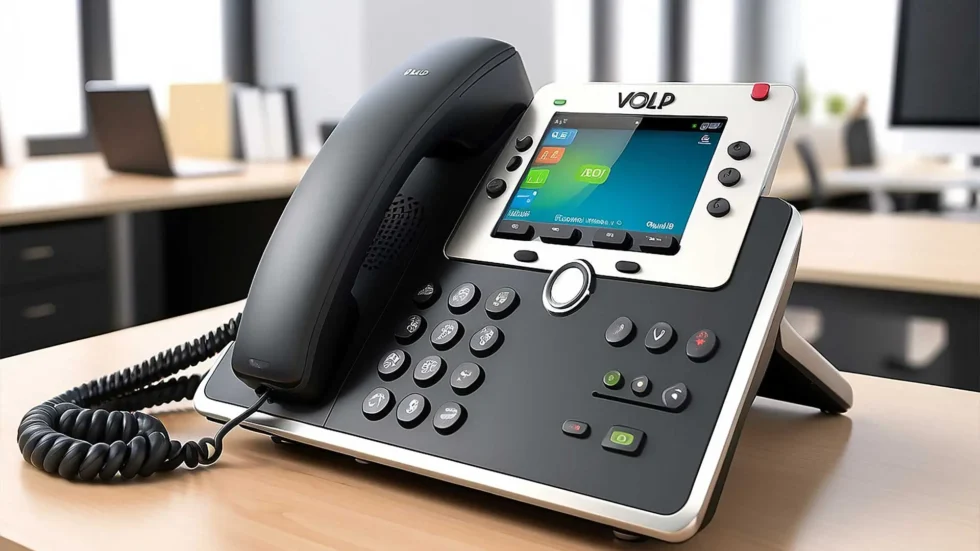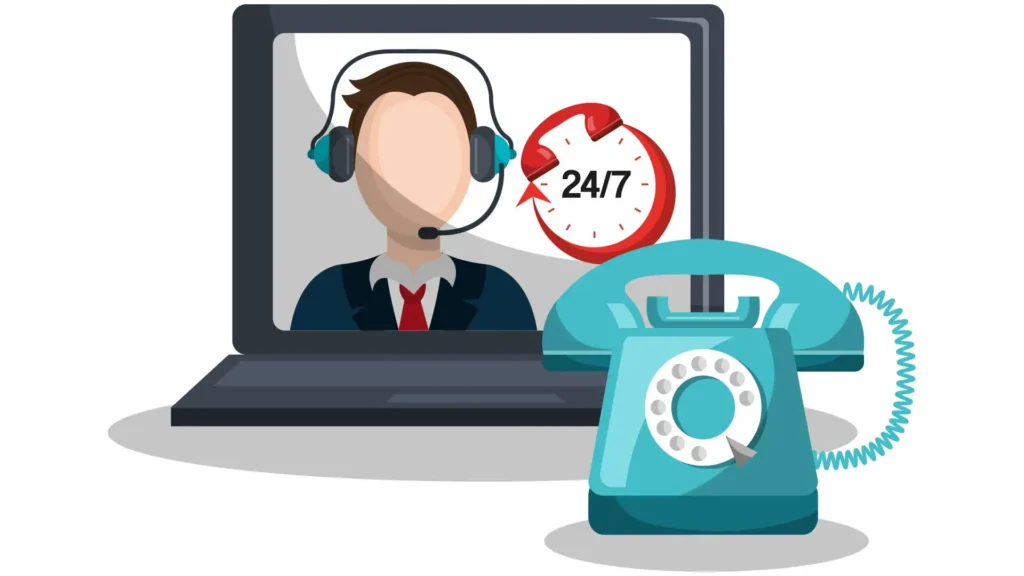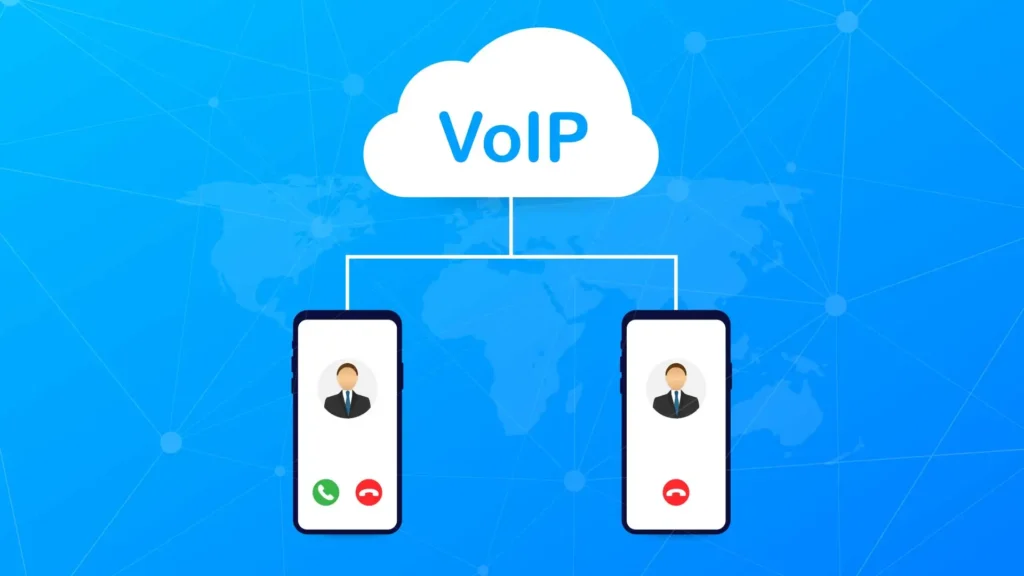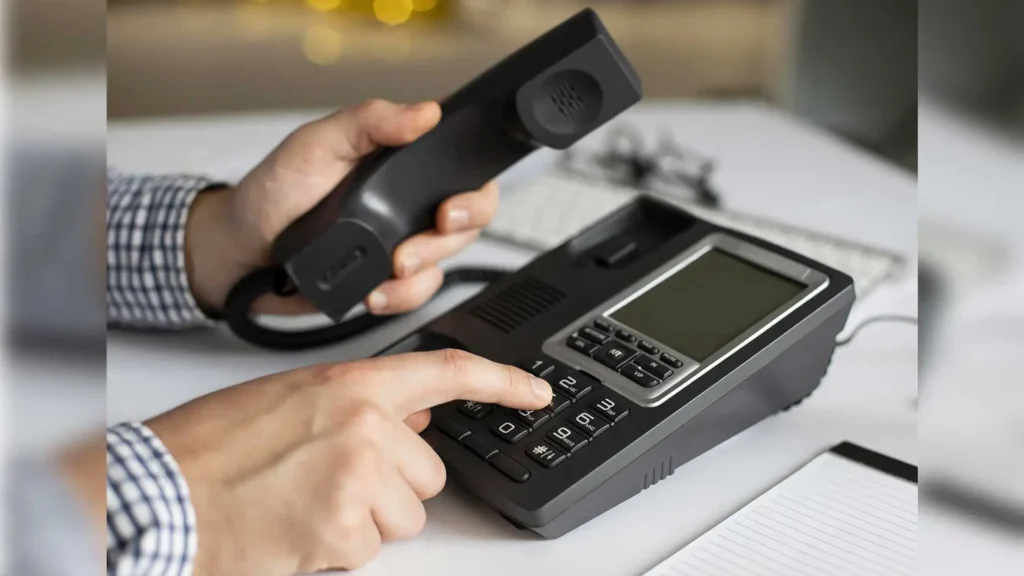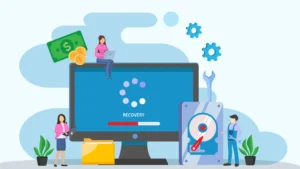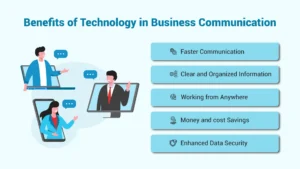In the digital age, communication has drastically evolved, with one significant advancement being VoIP or Voice over Internet Protocol. If you’ve ever wondered, “What is a VoIP caller?” This guide is here to answer that. VoIP technology allows users to make voice calls using an Internet connection instead of traditional phone lines, offering a modern, flexible approach to communication.
This guide covers everything you need to know about VoIP callers, including how VoIP works, its benefits, and its limitations. From cost savings and advanced features to potential security concerns and the need for a stable Internet connection, you’ll gain a comprehensive understanding of VoIP callers and how they are transforming the way we stay connected.
What is a VoIP Caller?
What is a VoIP caller? A VoIP caller is an individual who leverages Voice over Internet Protocol (VoIP) technology to make voice calls over the Internet, bypassing traditional phone lines. This innovative technology converts voice signals into digital data packets, transmitting them through the internet, which can significantly cut down communication costs, especially for long-distance and international calls.
Internet-Based Calling
VoIP callers use packet-switched networks, unlike traditional telephony that relies on circuit-switched networks. This means that when a VoIP caller speaks, their voice is broken down into small digital packets. These packets travel independently over the Internet and reassemble at the recipient’s end, allowing for seamless real-time communication. This method is more efficient and flexible, utilizing the vast infrastructure of the internet to facilitate calls.
Flexible Device Options
One of the primary advantages for VoIP callers is the flexibility in device options. They can make and receive calls using a variety of devices, such as computers, smartphones, tablets, and dedicated VoIP phones. This flexibility means that if there is a stable Internet connection, VoIP callers can stay connected from virtually anywhere. Applications like Skype, Zoom, and WhatsApp are popular examples of platforms that provide VoIP services, making it easy to communicate on the go.
Cost-Effective Communication
VoIP technology is known for its cost-effectiveness. Traditional phone services, especially for long-distance and international calls, can be expensive due to the infrastructure and services involved. VoIP drastically reduces these costs because it uses the Internet as its backbone. Many VoIP services offer free calls between users on the same platform and competitive rates for calls to traditional phone lines, making it an attractive option for both individuals and businesses looking to reduce their communication expenses.
Enhanced Features
Beyond basic voice calling, VoIP callers benefit from a range of enhanced features that traditional telephony often lacks. These include video calling, text messaging, voicemail-to-email, call forwarding, and integration with other digital services. These features not only enhance the calling experience but also provide added convenience and efficiency. For instance, video calls enable face-to-face communication, which is crucial for personal interactions and business meetings. Additionally, integration with other services means that VoIP can be seamlessly incorporated into various workflows, enhancing productivity and collaboration.
How Does VoIP Calling Work?
Understanding how VoIP calling works involves grasping the fundamentals of digital communication. VoIP technology transforms voice signals into digital data, facilitating efficient and cost-effective voice communication over the Internet.
Signal Conversion
When a VoIP call is initiated, the caller’s voice is converted into digital signals. This conversion is crucial as it allows voice data to be processed by computer networks.
Packetization
The digital signals are then divided into small packets. Each packet contains a portion of the conversation along with essential information like the destination IP address. This division ensures that data can travel efficiently across the Internet.
Transmission
These packets are transmitted over the Internet to the recipient. They travel through various routes to reach their destination, utilizing the most efficient paths available at any given moment.
Reassembly
At the recipient’s end, the packets are reassembled into a coherent audio stream. Advanced algorithms ensure that the packets are put back together in the correct order, allowing the recipient to hear the caller’s voice clearly and without delay.
This entire process, from signal conversion to reassembly, occurs almost instantaneously, ensuring real-time communication that feels as natural as traditional phone calls. VoIP calling leverages the power of the Internet to provide reliable, high-quality voice communication worldwide.
Who Uses VoIP Callers?
VoIP calling has become a cornerstone of modern communication, appealing to a wide range of users across various sectors due to its versatility and cost-efficiency.
Businesses: Companies, regardless of size, rely on VoIP for its affordability and advanced features. Businesses benefit from call forwarding, voicemail-to-email, and conferencing, which streamline operations and enhance communication. The cost savings, particularly on long-distance and international calls, make VoIP an attractive option for reducing expenses.
Remote Workers: As remote work becomes more prevalent, VoIP technology ensures seamless communication from any location with an Internet connection. Remote workers can participate in virtual meetings, collaborate with colleagues, and stay connected with clients, all while maintaining high-quality voice and video interactions
Individuals: Everyday users utilize VoIP to stay in touch with family and friends, especially for international calls. VoIP apps like Skype, WhatsApp, and Zoom provide free or low-cost calling options, making it easy to maintain personal connections across the globe.
Educational Institutions: Schools and universities integrate VoIP for virtual classrooms and administrative purposes. VoIP enables interactive online learning, faculty meetings, and efficient communication between students and educators, supporting the growing trend of remote education.
VoIP’s widespread appeal lies in its flexibility, cost-effectiveness, and enhanced features, making it a valuable tool for various users.
Differences Between VoIP Calls and Traditional Calls
Understanding the key differences between VoIP calls and traditional calls is crucial for making informed decisions about communication methods.
Cost: VoIP typically offers significantly lower rates than traditional phone services, especially for long-distance and international calls. This cost-effectiveness is due to the use of the Internet for data transmission, bypassing the expensive infrastructure of conventional telephony.
Infrastructure: Traditional calls rely on dedicated phone lines and circuit-switched networks, which require substantial infrastructure and maintenance. In contrast, VoIP utilizes the existing Internet infrastructure and packet-switched networks, converting voice signals into digital packets transmitted over the Internet. This approach is more efficient and less resource intensive.
Mobility: VoIP provides unparalleled flexibility and mobility. Users can make and receive calls from any location with an Internet connection using various devices, such as smartphones, laptops, and tablets. This mobility is particularly beneficial for remote workers and frequent travelers, ensuring they remain connected regardless of their physical location.
Features: VoIP often includes advanced features not typically available with traditional phone services. These features encompass video calls, SMS, voicemail-to-email, call forwarding, and integration with other digital tools and platforms. Such functionalities enhance the overall communication experience, offering greater convenience and productivity.
VoIP’s cost-effectiveness, reliance on the Internet, enhanced mobility, and advanced features distinguishes it from traditional calling methods.
Types of VoIP Callers
When discussing the types of VoIP callers, several variations come into play, each catering to different needs and preferences.
App-Based VoIP Calls
App-based VoIP calls are made through services like Skype, WhatsApp, and Zoom. These platforms offer voice and video calling features, allowing users to communicate over the internet using their smartphones, tablets, or computers. These applications are especially popular for personal use and informal business communications due to their ease of use and accessibility.
Residential VoIP
Residential VoIP is designed for home users who want to replace their traditional phone service with a more cost-effective solution. Providers like Vonage and Ooma offer residential VoIP services that connect to the user’s existing internet connection. This type often includes features like voicemail, caller ID, and call waiting, providing a full-featured phone experience without the high costs associated with traditional landline services.
Business VoIP
Business VoIP is tailored specifically for companies and includes advanced management features that support professional communication needs. Providers such as RingCentral and 8×8 offer services that include call routing, auto-attendants, and conference calling. Business VoIP solutions often integrate with other business tools, enhancing productivity and collaboration within the organization. This type of VoIP is ideal for companies looking to streamline their communication infrastructure and reduce costs.
Mobile VoIP
Mobile VoIP calls are made via mobile apps using either mobile data or Wi-Fi. Services like Viber and Google Voice enable users to make and receive calls on their smartphones without relying on traditional cellular networks. Mobile VoIP is highly convenient for users who are frequently on the move, offering flexibility and the ability to stay connected from virtually anywhere with internet access.
Common Uses of VoIP Callers
VoIP callers leverage the technology’s versatility across various scenarios, enhancing communication in both personal and professional contexts.
Personal Communication
VoIP is a game-changer for personal communication, especially for staying connected with loved ones over long distances. With VoIP services like Skype, WhatsApp, and FaceTime, individuals can make free or low-cost calls, including video chats, making it easier to maintain relationships regardless of geographical barriers.
Business Communication
In the business world, VoIP plays a crucial role in both internal and external communications. Companies use VoIP for everyday operations such as team meetings, project collaborations, and inter-departmental communication. VoIP is also invaluable for customer support and sales, offering features like call forwarding, voicemail-to-email, and integration with CRM systems to enhance customer service and streamline sales processes.
Educational Purposes
Educational institutions have adopted VoIP for a range of purposes, significantly enhancing the learning experience. Online classes, webinars, and virtual seminars utilize VoIP to connect students and teachers from around the globe. This technology facilitates real-time interaction, making remote learning more interactive and effective. Additionally, VoIP supports administrative communication, helping institutions manage their operations smoothly.
Telehealth
The healthcare sector increasingly relies on VoIP for telehealth services, which have become particularly vital in recent years. VoIP enables remote medical consultations, allowing patients to connect with healthcare providers from the comfort of their homes. This is especially beneficial for follow-up appointments, mental health services, managing chronic conditions, providing accessible and convenient healthcare options.
Advantages of Using VoIP Callers
Exploring the benefits of VoIP technology reveals why it’s becoming the preferred choice for many individuals and businesses. Here are some key advantages:
Cost Savings
One of the most significant benefits of VoIP is the potential for substantial cost savings. Traditional phone services, especially for long-distance and international calls, can be expensive. VoIP dramatically reduces these costs by routing calls over the Internet. Many VoIP services offer free or low-cost calls, particularly between users on the same platform, which can lead to significant savings on phone bills.
Flexibility
VoIP provides unparalleled flexibility. Calls can be made from any device with an Internet connection, including smartphones, laptops, tablets, and dedicated VoIP phones. This means users are not tied to a specific location and can make and receive calls from anywhere in the world, making it an excellent option for remote workers, travelers, and businesses with a global presence.
Scalability
For growing businesses, VoIP is easily scalable. Adding new lines and features can be done without the need for extensive hardware or infrastructure changes. This scalability allows businesses to expand their communication capabilities seamlessly as they grow, without the hassle and cost associated with traditional phone systems.
Advanced Features
VoIP offers access to a wide range of advanced features that enhance communication and productivity. These features include voicemail-to-email, call forwarding, video conferencing, and text messaging. Such functionalities go beyond what traditional phone services offer, providing users with a more comprehensive and efficient communication solution.
Integration
Seamless integration with other digital tools and platforms is another major advantage of VoIP. VoIP systems can be integrated with customer relationship management (CRM) software, email, and other business applications, streamlining workflows and enhancing productivity. This integration allows for a more cohesive and efficient communication system.
Disadvantages and Limitations of VoIP Callers
Despite its many advantages, VoIP technology does come with some drawbacks:
Internet Dependency
VoIP requires a stable Internet connection. Poor connectivity can lead to issues with call quality, such as delays, echoes, or dropped calls. This dependency on Internet stability can be a limitation in areas with unreliable or slow Internet connections.
Emergency Calls
VoIP may not provide reliable access to emergency services. Unlike traditional phones, which can provide precise location data to emergency responders, VoIP calls may lack this capability, potentially delaying emergency assistance.
Power Outages
During power outages, VoIP devices won’t work unless there is a backup power source. Traditional phones, especially landlines, typically remain operational during power failures, providing a more reliable option in such scenarios.
Security Risks
VoIP is susceptible to cyber threats and privacy concerns. Without proper security measures, VoIP systems can be vulnerable to hacking, eavesdropping, and other cyber-attacks. Ensuring robust encryption, firewalls, and regular security updates is essential to mitigate these risks.
VoIP Caller Security and Privacy
Addressing VoIP security and VoIP privacy is paramount:
Encryption: Ensuring calls are encrypted to prevent eavesdropping.
Authentication: Using strong authentication methods to protect user accounts.
Firewalls and VPNs: Implementing firewalls and VPNs to secure VoIP networks.
Regular Updates: Keeping software and hardware updated to protect against vulnerabilities.
Future of VoIP Calling
The future of VoIP calling is bright, driven by several emerging trends:
5G Integration: The rollout of 5G networks promises enhanced performance and reliability, significantly improving VoIP call quality and reducing latency.
AI and Machine Learning: These technologies are set to revolutionize VoIP with features like improved call quality, automated transcription, and intelligent call management.
IoT Connectivity: VoIP will integrate with IoT devices, offering comprehensive communication solutions that connect various smart devices seamlessly.
Enhanced Security Measures: Continuous advancements in encryption and cybersecurity will protect VoIP users from potential threats, ensuring safer communications.
These innovations will make VoIP calling more efficient, secure, and integrated into our daily lives, reinforcing its position as a leading communication technology.
Wrapping Up
Understanding the question, “What is a VoIP caller?” opens a world of modern communication possibilities. VoIP technology revolutionizes how we connect by offering significant cost savings and a host of advanced features that traditional phone lines can’t match. As technology evolves, VoIP is becoming increasingly integral to our personal and professional lives, providing a flexible, efficient, and cost-effective communication solution.
Whether you’re a business owner seeking to streamline operations, a remote worker needing reliable connectivity, or someone wanting to keep in touch with loved ones, VoIP caters to diverse needs. Its ability to integrate with various devices and platforms ensures you stay connected no matter where you are. Embracing VoIP means harnessing the future of communication, where convenience, affordability, and advanced features converge to enhance everyday interactions.
Author
-

Jay S. Allen, MCP, MCSA, MCSE, MCSE+ Security, is an experienced IT professional with more than 20 years in the industry. He specializes in delivering enterprise-level cybersecurity and IT support solutions tailored to small and mid-sized businesses. Through Techno Advantage, Jay is dedicated to helping organizations strengthen their security posture and achieve greater efficiency through smart, scalable technology solutions.

